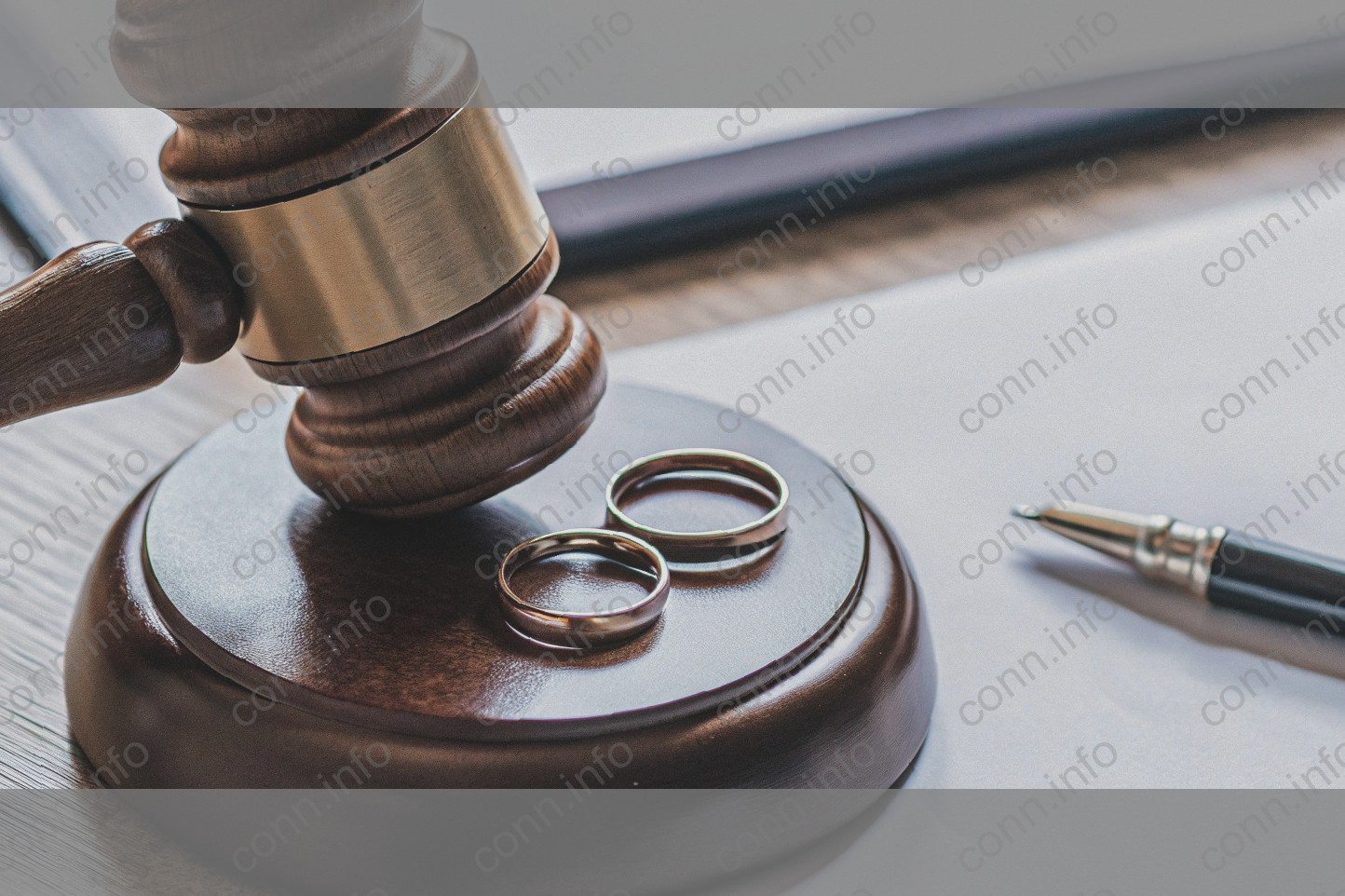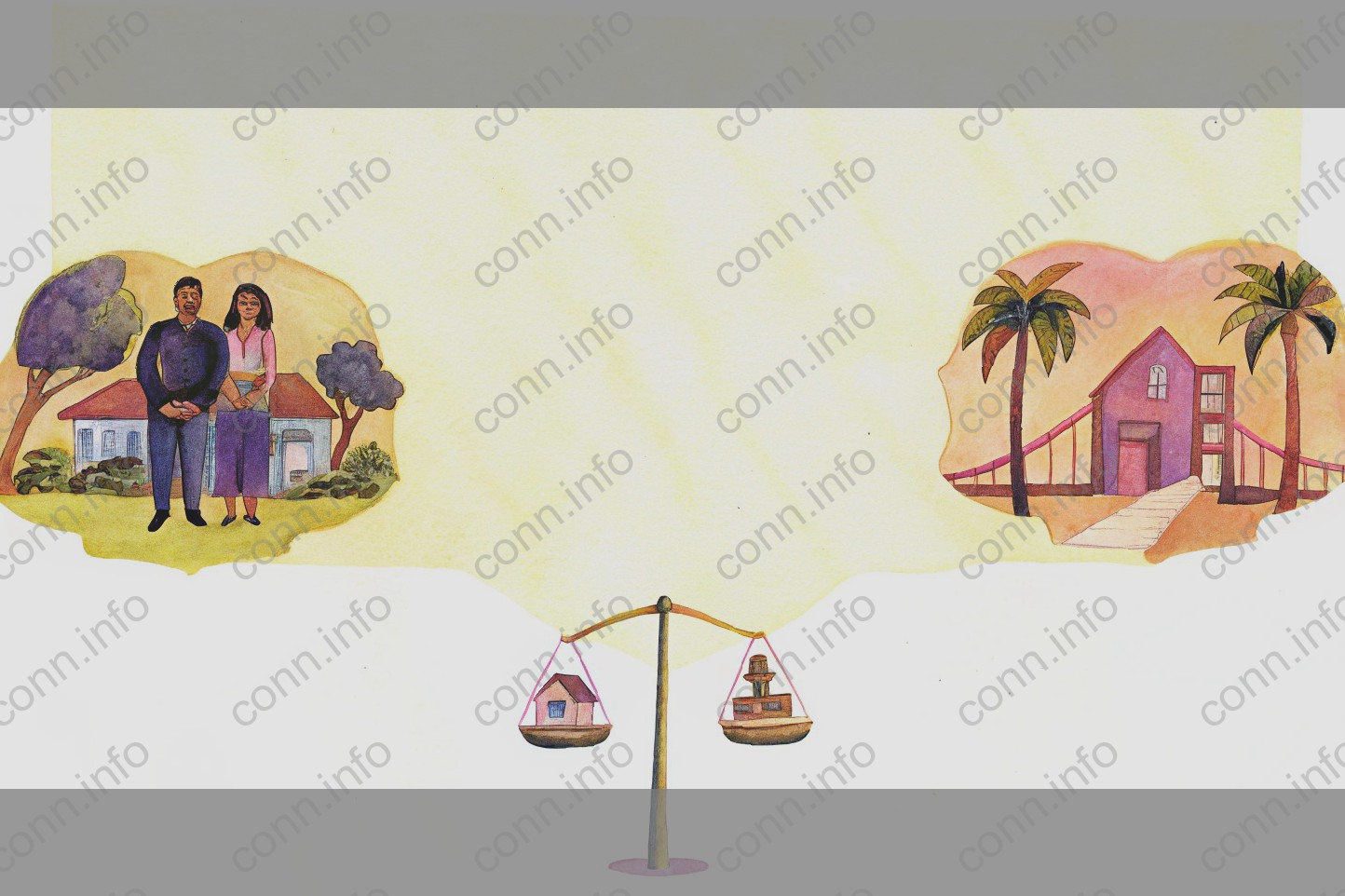The Ins and Outs of a Legal Separation in Virginia
A legal separation is an alternative to divorce that allows a married couple to live apart for a long period of time. This period is intended as a trial period to determine if the relationship can be repaired, or if divorce is the best path going forward. In Virginia, legal separation is available to couples who have an irretrievable breakdown of their marriage, but do not desire to obtain absolute divorce at that time.
While legal separation is somewhat rare, it does serve an important purpose San Bernardino divorce attorney at the Law Office of Daniel D. Moschetti note that: The first reason to consider a legal separation is that if one spouse is unfavorable to divorce, then this option allows you to settle the issues of child custody, child support and property division well before you file for divorce. After legal separation, either spouse can file a divorce action for the division of martial assets. The final outcome of divorce will generally be the same whether or not the couple separates first .
The second reason for considering legal separation is that it establishes a legal status for the couple. After separation, it allows the couple to file a Statement of Separation in the Circuit Court, putting the public on notice that a spousal relationship may legally exist between the parties. And, while domestic violence is not recognized in Virginia as a ground for divorce, after legal separation, if one spouse is the victim of spousal violence, they may seek protection in the local Circuit Court by filing a Protective Order against their spouse.
The third reason for considering legal separation is that, in establishing a legal status between the couple, it allows the couple to resolve the division of assets, debts, and child support prior to filing for divorce. After separation, the couple may enter into a separation agreement which can be enforced between themselves until a final divorce is established.

Legal Separation Grounds
In Virginia, the grounds for legal separation are the same as the grounds for divorce. So, you may be asking yourself, why are we talking about legal separation? I was asked by one of my readers to provide them with information about legal separation in Virginia; and there are a couple of reasons that some people may prefer legal separation over divorce.
First, for religious beliefs or the potential for greater financial benefits, some people may wish to remain separated from their spouse, but not obtain an absolute divorce. In fact, many people seek legal separation prior to divorce so they can better understand their new living expenses and create a budget they can use after a final divorce happens.
Second, legally separating from your spouse allows you another avenue in which you can ask the courts for a variety of relief (i.e. child support, spousal support, arrange for use of certain property still titled in both parties’ names, etc.) prior to finalizing a divorce.
Third, you may wish to use the parameters of a separation agreement or court order while going through the divorce process and until a final and uncontested divorce occurs.
In Virginia, the grounds for divorce may be temporary or permanent. There are two temporary grounds and five permanent grounds. The two temporary grounds for divorce in Virginia are as follows:
1. Both parties mutually agree to live separate and apart without any cohabitation;
2. One party, without fault, is living separate and apart.
The five permanent grounds for divorce in Virginia are as follows:
- One party commits adultery.
- Willful desertion or abandonment.
- Conviction of a felony and confinement in prison for one year or more.
- Cruelty and/or willfully causing serious mental or physical injury.
- Cohabitation with a non-marital partner.
It’s important to note that the last four grounds for divorce in Virginia are "fault based" grounds for divorce. This means that the claimant spouse must affirmatively prove that the other spouse behaved in a certain fashion. It also means that a divorce will almost always occur in that instance because a Virginia court will not deny the request for divorce, if proven.
If you seek a legal separation in Virginia (even if you don’t want to go through a divorce), the court may still grant the party at fault a divorce. In the United States Supreme Court case of McDonald v. McDonald, 207 Va. 203 (1966), the highest Virginia court held that where an offense is alleged to be the cause of a separation and such offense has not been condoned or committed pardonable cruelty, a divorce will be granted even though the parties have not lived separate and apart for the statutory period of time. The court generally will not declare, "that an offense was committed," but the issue is imbedded in the order granting the divorce.
Coping with the Legal Separation Process
The process of legal separation in Virginia is fairly straightforward, but both spouses must be in agreement on the critical terms of your separation. While there is not a formal process for separation in Virginia, the best way to go about this endeavor is through negotiation, and then creating a separation agreement to resolve these terms without having to involve the courts or receive court orders. An entry of separation is not filed with the court like a divorce proceeding. However, if you have been married for less than one year, there are some strict guidelines for you to follow. In a separation agreement, you and your spouse will need to decide everything from where you will live to the custody of the children to how debts will be paid and what will happen to marital property – such as investments and homes. Often the spouse who occupies the home after separation will be responsible for paying the mortgage. The other spouse may continue to be responsible for the mortgage, but just financially as opposed to physically residing in the home. This separation agreement is critical to the complete end of the marriage between you and your spouse. It covers all terms associated with the period of September until divorce is signed, and beyond to the extent both spouses agree. As there are no legal documents that need to be filed with the court system, you and your spouse move on with your lives, separated but not yet divorced. You are free to marry again if you meet someone else, but you should seek legal counsel from an attorney before doing so to ensure you set everything up correctly.
Creating a Legal Separation Agreement
Before commencing a divorce proceeding in Virginia, some spouses may wish to enter into a separation agreement. A separation agreement is a written contract where the parties agree on the terms for their separation. The agreement can address issues such as the property division, child support, custody and visitation, and other matters. The terms will be subject to negotiation between you and your spouse. If you are contemplating divorce, it is advisable to consult an attorney to assist you in preparing the initial draft of the separation agreement. An attorney will generally charge a higher hourly rate to draft the separation agreement since the drafting process is more complicated than the reviewing process. Failure to hire an attorney to draft the agreement can lead to future disputes about the terms of the separation. The other spouse may claim that there was no meeting of the minds with respect to the terms of the agreement since the agreement was not drafted by an attorney. Pursuant to the Virginia Uniform Statute of Frauds, Va. Code § 11-2, the separation agreement must be in writing and signed to be enforceable. The separation agreement can be included in a "separation and property settlement agreement" or it can be a separate document.
The Legal Rights and Responsibilities of a Legal Separation
Once separated, the legal rights and obligations of each spouse are defined. Any agreement between the parties regarding finances or children must be reduced to a written contract or incorporated into a Court Order. All Virginia Courts require parents to submit a custody agreement that has been signed by both parties. If the parties are unable to reach an agreement, a Judge will ultimately determine all custody issues based upon what is in the best interests of the children. With regard to vexatious issues such as custody and support , this process must be given the utmost diligence.
With financial matters, unless there is a written agreement or consent order, each party is under a legal obligation to financially support the other spouse. Under certain circumstances, either party may be eligible for certain support payments such as child support and spousal support. Of course, Virginia Courts only have jurisdiction over marital finances when at least one party has been a resident of the Commonwealth for at least 6 months prior to filing for separation.
Turning a Separation Into a Divorce
In Virginia, a legal separation agreement can be converted into a divorce action in several ways. Fault-Based Divorce Conversion – Since 2018, the ground for divorce after a legal separation is a one-year separation, and the parties can convert the legal separation by filing for divorce after they’ve been separated for one year (or six months if the parties consent to the divorce and have no minor children). The court will set a hearing date (in Northern Virginia, that hearing date is 60-90 days out), and a divorce decree will be entered on the day of that hearing (assuming no complications like a failure to serve process on one of the parties). If one of the parties wishes to get a divorce sooner, they may file for divorce on fault grounds. No-Fault Divorce Conversion – If the parties agree to convert their relationship from a legal separation to a divorce without the doing any of the things normally required under Virginia law for divorce, that should not be a problem. That is because a 2004 Virginia case, Barge v. Barge, held that "a party to a divorce may waive any defect in the procedure or process, so long as the court has jurisdiction over all parties." This means, in effect, that the parties can agree to anything they want – so long as the court has jurisdiction. After the divorce complaint is filed, and once the parties have lived separate and apart for more than a year (or six months with agreement and no minor children), a motion to amend the complaint to proceed as a divorce should be filed. If wife is the one who filed for separation, then she would file to amend her own complaint. If husband filed, then he would file that motion to amend. When the motion is granted, the complaint will be amended to convert it from a complaint for legal separation to a complaint for divorce. If the parties lived separate and apart for more than a year before filing the initial separation complaint, they can simply file a motion for an uncontested trial on divorce. Once a final decree of divorce is entered, that will "go back in time" and act as the same as an uncontested final decree of divorce arising out of an original complaint.
Finding Legal Help
As with all significant life events, finding experienced counsel to represent you in a Virginia legal separation is almost always the best course of action to help you make it a positive experience. However, there are countless family law attorneys all around Virginia who are eager for your business, and all fervent claims of being the best at what they do aside, it is not always easy to determine just which individual is the best fit for your particular case.
To start, you may wish to consult with friends or family who have had experience going through a separation vs marriage dissolution to see who they recommend. You can then research those recommended lawyers online to see if they practice areas of law that include legal separation cases, meet your preliminary standards and have good reviews or testimonials . Once you have shortlisted a few potential candidates, it is time to set up one-on-one meetings to discuss your situation, payment options, and get a feel for how they will handle your case and the process.
Have an idea of what you should pay before you go to your consultation appointment so you can ask for a breakdown if needed. Make sure to communicate clearly what services you are looking for and what money you are willing to spend. You should also talk about payment plans to help you ensure you’ll be able to afford the representation you need. Finally, be aware of the differences between lawyers who handle both separation and divorce cases and only the former or latter, as well as if your case should include a legal separation and a divorce in that order or go straight to divorce due to the specific circumstances involved.


